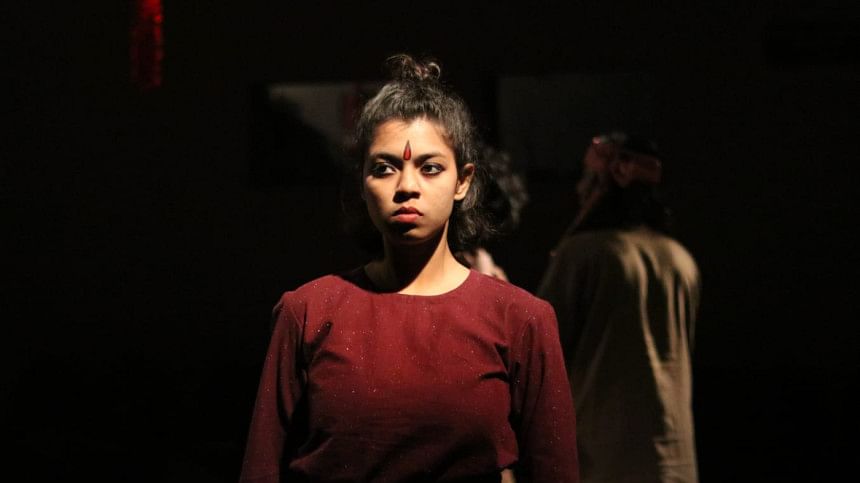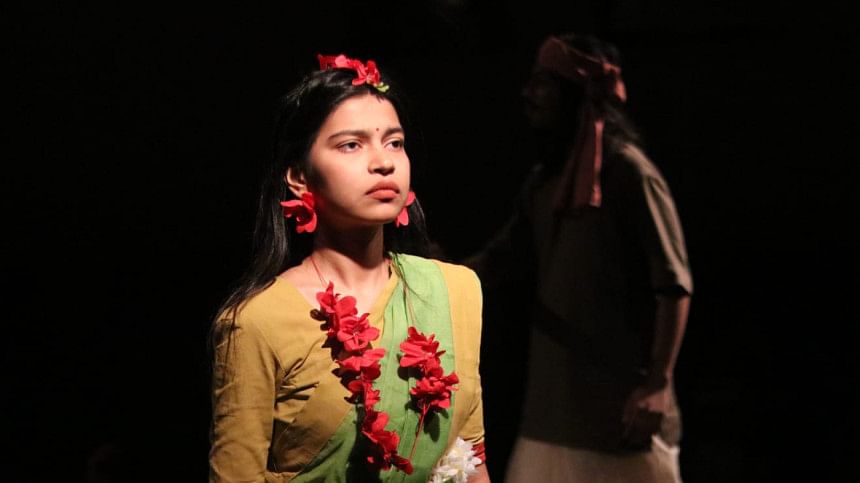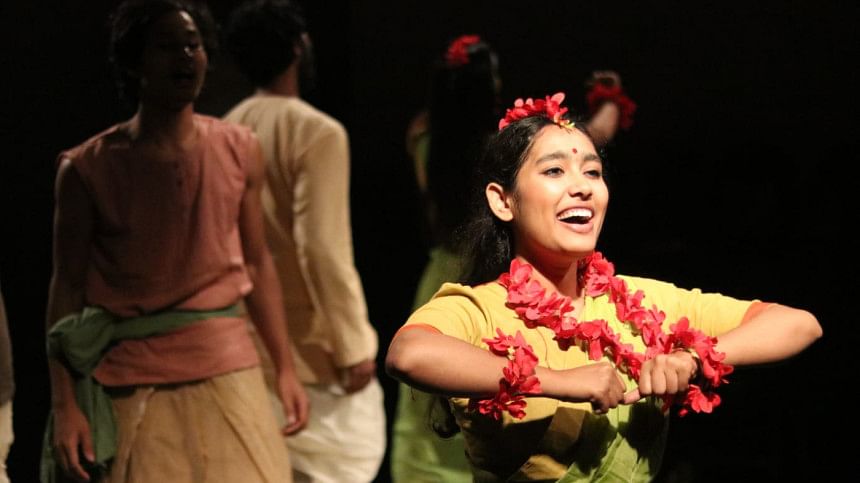‘Raktakarabi’ to return to stage at DU’s Natmandal

Rabindranath Tagore's legendary "Raktakarabi", a play that has shaped the Indian subcontinent's theatrical tradition, is set to make a grand return to the stage at Dhaka University.
A talented ensemble of third-year students from the Department of Theatre and Performance Studies will bring the iconic production to life from February 24 to March 1, at the Natmandal Auditorium, under the direction of Assistant Professor Tanvir Nahid Khan. The play will be staged daily at 7pm, with additional shows on February 28 and March 1, at 5:00pm and 7:30pm, respectively.

This production marks the centenary of the play's original performance, and it serves as both a tribute to Tagore's theatrical genius and a reimagining of his vision for contemporary audiences. Tagore's admiration for Western theatre in his youth was well-documented, and "Raktakarabi" itself is a blend of that influence and his deep-seated passion for indigenous theatrical forms.
In his directorial approach, Tanvir Nahid Khan draws from Tagore's reflections on minimalism and realism, as seen in his writings on stagecraft, notably in works like "Pather Sanchay" and "Rangmanch".

In staging "Raktakarabi", the director has significantly emphasised the play's original design: sparse, almost barren sets that foster an intimate actor-audience relationship.
The result is a production that invites its viewers into the heart of the drama, rather than distancing them with grandeur or spectacle. His approach aligns with Tagore's belief in the transformative power of simplicity, creating an environment where the raw emotions of the characters take centre stage.

This return of "Raktakarabi" is not just an artistic endeavour; it is a timely, politically charged re-engagement of the play's central themes. Tagore's exploration of human greed, the dehumanisation of workers, and the struggle for justice are as relevant today as it was a century ago. Set in the mythical city of Yakshapuri, where a tyrannical king exploits his people to mine gold, the play's depiction of a society driven by economic greed, where workers are reduced to mere cogs in a machine, speaks to ongoing struggles for equity and dignity. As the city's workers, trapped in their labor, resist the king's oppression, "Raktakarabi" became a universal tale of rebellion—against both social structures and human nature.

Tanvir Nahid Khan's production also brings into focus Tagore's unique take on love and beauty in the face of oppression. Nandini, the play's central figure, embodies the forces of love, freedom, and beauty, while Ranjan, her lover, represents the power of defiance. Their tragic relationship serves as the emotional and moral core of the play. As the workers of Yakshapuri fight for a life beyond the oppressive grip of the king's greed, their desires for freedom, love, and beauty illuminate the stark contrast between the industrialised world and human yearning.

This production of "Raktakarabi" also holds a special significance in the context of Bangladesh's political climate. In the wake of mass movements for democratic reforms and social justice, the play's call for political transformation resonates with current aspirations for a fairer, more just society. The production offers more than just an artistic performance; it is a reflection on the nation's political landscape, where the struggle for a democratic state mirrors the defiance against the forces of exploitation seen in the play.

 For all latest news, follow The Daily Star's Google News channel.
For all latest news, follow The Daily Star's Google News channel. 







Comments